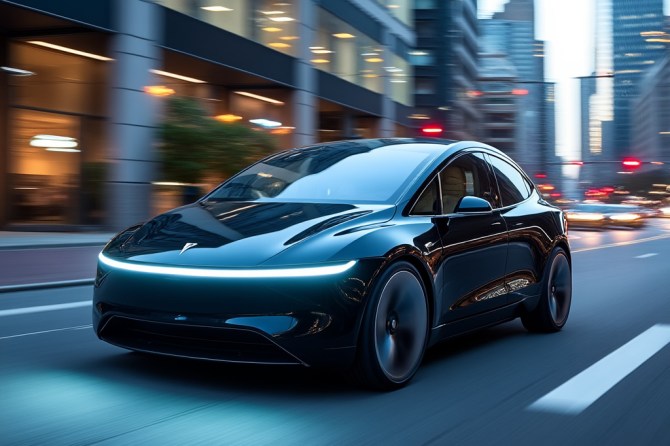In a significant move to broaden its market reach, Tesla is gearing up to launch the highly anticipated Model Q in the first half of 2025. According to a recent Deutsche Bank report, this new affordable electric vehicle is expected to retail for less than $30,000 in the U.S. – a price point aimed at making EVs more accessible to mainstream consumers.

As the global automotive landscape shifts towards electric mobility, the Model Q is poised to compete with popular models from established brands like BYD and Volkswagen. In China, it’s projected that the Model Q could be priced between CNY 210,000 and 230,000 ($30,000 to $34,000), leveraging government subsidies to appeal to a growing base of eco-conscious drivers.
In Europe, particularly in the UK and Germany, the Model Q is expected to have a competitive price range between £25,000 to £30,000 and €25,000 to €30,000, respectively, making it an attractive option for buyers interested in transitioning to electric vehicles without breaking the bank.
In South Africa, where the market for EVs is still developing, entry-level electric vehicles can often reach around ZAR 500,000 ($30,000) before subsidies, suggesting that the Model Q could capture local interest if priced competitively.
The Model Q, described as approximately 15% smaller and 30% lighter than the Model 3, is part of Tesla's broader strategy to launch a new production platform focused on cost-effective models. This initiative not only aims to drive sales but also aligns with the company’s long-term goals to pave the way for autonomous driving technology.
Despite the excitement surrounding the Model Q, Tesla’s China division stated that they currently have no further details to share about the vehicle. Tesla's track record of innovation and strategic planning has analysts hopeful, as they anticipate the Model Q could help the company tap into new customer demographics and significantly enhance annual growth rates.
As the launch date approaches, consumers around the globe are eager to see how Tesla's Model Q will shape the future of affordable electric vehicles, signaling a new chapter in the evolution of sustainable transportation.